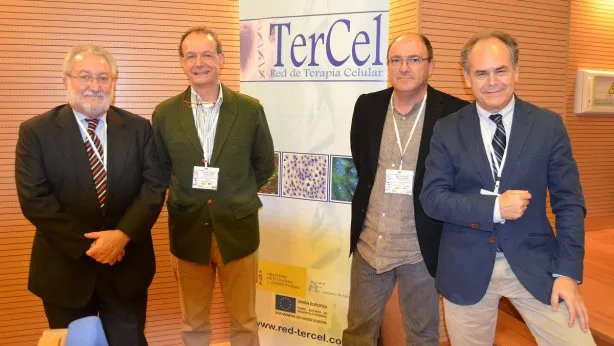A patient with type 1 diabetes has already received insulin -producing cells obtained from embryonic stem cells and more than one hundred patients have received adult stem cells for the treatment of complications.
Bernat Soria, of the Andalusian Center for Molecular Biology and Regenerative Medicine (CABIMER), has proposed collaborative strategies in the design of new cell therapies in diabetes, specifically, a strategy based on immunomodulation and another of replacement of cells damaged by other operational, within the framework of the Annual Meeting of the Cell Therapy Network -TERCEL- of the Carlos III Institute, held in Seville.
Type 1 diabetes is an autoimmune problem;That is why therapies with monoclonal antibodies have been proposed to stop the autoimmune attack, but have not worked.In the cell therapy network they then thought of the mesenchymal, using a transgenic mouse model that coexpresses in the beta cell the CD80 that will link to the lymphocyte T. The preclinical result was positive so that the network has been proposed to propose a newClinical trial to stop type 1 diabetes.
"Currently," says Soria, "we would like to perform a clinical trial in which we use mesenchymal cells in type 1 diabetics that have debuted in the last six months, which are over 18 years old and less than 35, that is, with some regenerative capacity".
The other strategy is to replace, that is, generate cells in the laboratory that are insulin producing cells.It is about obtaining a cell from a human embryonic cell that behaves like a beta cell and normalizes blood glucose in a diabetic mouse model.In Cabimer, insulin -producing cells have already been achieved that contain twice this hormone regarding conventional procedures, but it has been in the United States where they have been implemented in a patient and the results are waiting.
Finally, to deal with the complications associated with diabetes, such as the critical ischemia of the lower limb in these patients and avoiding the amputation of the foot, in three clinical trials the safety and viability (phase I) has been demonstrated, and it is availableof efficacy data (phase II) of the use of mesenchymal, mononuclear and CD133+ autologous cells.Bernat Soria proposed to the network to create a working group that helps to look for the 2.0 cell that avoids the amputation of the diabetic foot.
Cell medication
For his part, Damián García Olmo, head of the Department of Surgery of the Jiménez Díaz Foundation, in Madrid, has exposed during the meeting that for the first time a cycle of clinical trials has been completed in the field of cell therapy that allows to convertA cell lineage in a medicine for the treatment of fistula in Crohn's disease.This is the CX601 medicine, of the Biopharmaceutical Company Tigenix NV, which has achieved the primary objective of the phase III Admire-CD in the treatment of complex perianal fistulas in these patients.
According to García, an test coordinator of the trial, "CX601 is a suspension of expanded alogenic stem cells derived from adipose tissue (EASC) intrally injected."A single CX601 administration was statistically superior to placebo to achieve combined remission in week 24 in patients who did not achieve an adequate response with previous therapies, including ANTI-TNF.The results, known this summer, confirmed the favorable profile of safety and tolerability of CX601.
Without a doubt, "achieving more than 50 percent combined remission in patients who had not responded to previous treatments is an achievement," said Damián García.In total, 289 patients were recruited in 50 centers from 7 European countries and Israel.These positive resultsThey allow the presentation of the registration in Europe in the first quarter of 2016 and advance in the United States with the pivotal essay whose protocol has been approved by the FDA.


